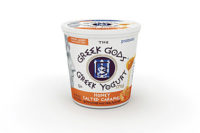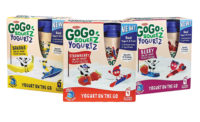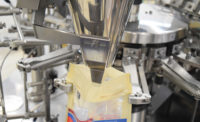Sustainable dairy packaging is nothing new. Lightweighting, or source reduction, remains an ongoing process. Container wall thickness is reduced and flexible structures are down-gauged. Source reduction not only conserves resources, but also cuts costs and carbon footprint.
Reusable crates and bulk packaging continue to have a presence, and many packaging materials used for dairy products are recyclable. High-density polyethylene (HDPE), the primary resin used for milk bottles, is recycled in most curbside recycling programs in the United States.
A growing number of programs accept polypropylene (PP) cups and tubs used for yogurt, cottage cheese and sour cream. Recycling is expanding for cartons, another popular packaging format for fluid milk and other liquid dairy products, The Carton Council, Denton, Texas, estimates more than 60% of U.S. households currently have access to carton recycling.
How to recycle
To encourage recycling, a growing number of brand owners are marketing products with the How2Recycle label developed by the Sustainable Packaging Coalition, a project of GreenBlue, Charlottesville, Va.
With source reduction, reuse and recyclability well-established, the concept of sustainable packaging has broadened, and attention is shifting to:
- Recycled content,
- Renewable content and
- Higher levels of corporate citizenship.
Recycled content is common in paper, paperboard and corrugated and it is increasingly present in plastic containers. Food-grade recycled polyethylene terephthalate (rPET) is no longer a rarity.
Jörg Sabo, marketing director at Greiner Packaging Corp., Pittston Township, Pa., explained: “With thermoforming, the rPET layer is integrated into the packaging as a middle layer. With injection stretch blowmolding, it is possible to add a certain amount of rPET to the granulate or to even produce a 100% rPET bottle.”
Using rPET reduces carbon footprint. Converting to rPET for cups results in reduced lidstock sealing temperatures and improved peel properties. In this way, energy can be saved during the production process, Sabo said.
Recycled HDPE for retort packages
Food-grade recycled HDPE (rHDPE) also is available. Envision Plastics, Atlanta, received a letter of no objection from the U.S. Food and Drug Administration clearing its brand of rHDPE resin for Conditions of Use A through H at levels up to 100%. That means it can be used for packaging virtually any type of food, including fatty or retorted products. Made from U.S.-sourced, recycled food packaging, the resin serves as a drop-in replacement for virgin HDPE and is fully recyclable in the HDPE waste stream.
With the availability of renewable resins expanding, particularly plant-based versions of PET and HDPE, come 100% renewable aseptic formats from Tetra Pak, Denton, Texas, and SIG Combibloc Inc., Chester, Pa.
Materials with renewable content also may be able to overcome recycling difficulties with multi-material flexible packaging. Tipa Corp. from Israel (with U.S. headquarters in Morristown, N.J.) has developed food-grade, certified-compostable film. It’s currently used for dry food products, but research is underway to develop material suitable for dairy applications.
A package that combines renewability and source reduction, Greiner’s product wraps a paperboard label around a plastic cup. This allows the amount of plastic to be reduced significantly, Sabo said. He said the paperboard wrap can be removed and disposed of separately. Or, it can be made of recycled board which improves the environmental impact up to 35%. To maximize cup recycling, Greiner is testing the possibility of replacing PP with HDPE because HDPE is more widely recycled in the United States.
“Usually HDPE used for cups shows deficits in stability and top load (due to the softer consistency of HDPE),” said Sabo.
But a paperboard wrap could compensate and provide structural strength, thereby combining renewable content with a high degree of recyclability for both cup and label.
Taking a broader view of sustainability, Stonyfield is promoting conservation. YoKids yogurt promotes the SAFE: Saving Animals From Extinction program of the Association of Zoos and Aquariums , Silver Spring, Md.





